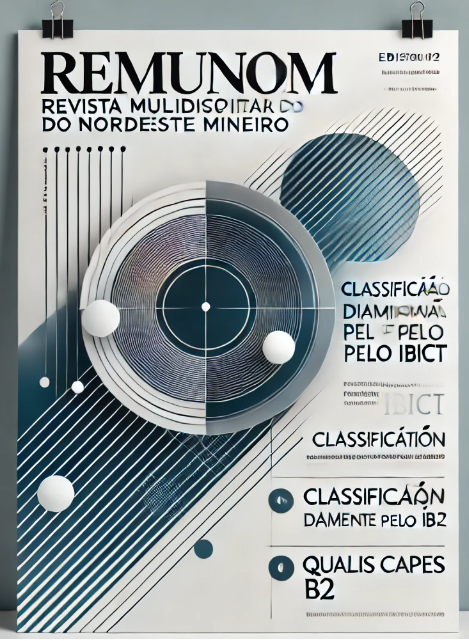INDIGENOUS SCHOOL EDUCATION: INTERCULTURAL, BILINGUAL, SPECIFIC, AND DIFFERENTIATED IN THE CONTEXT OF PUBLIC POLICIES IN ITACOATIARA – AM
DOI:
https://doi.org/10.61164/rmnm.v10i1.3928Keywords:
Educação; Indígena; Cultura.Abstract
This research aimed to analyze Indigenous school education in Itacoatiara, focusing on its legal
precepts and its relationship with public policies regarding the provision and implementation of this
educational modality. It sought to answer the following questions: How are the principles of
intercultural, bilingual, specific, and differentiated Indigenous school education presented within the
context of the municipality’s educational policies? What discourses emerge in the relationship
between what is legally established and what is actually implemented? The study also aimed to
understand whether the policies developed by SEMED/Itacoatiara recognize the need for specific,
differentiated, and quality Indigenous education, and whether there are practical conflicts and
contradictions to be overcome. The research followed a qualitative approach, using semi-structured
interviews with coordinators and pedagogues from SEMED, as well as teachers working in schools
located in Indigenous territories in the Rio Urubu communities. The interviews were conducted via
video calls due to challenges encountered during the data collection period. The scientific initiation
project titled “Intercultural, Bilingual, Specific, and Differentiated Indigenous School Education in the
Context of Public Policies in Itacoatiara-AM” primarily aimed to identify the existing challenges to
promoting quality Indigenous education, respecting the cultural and linguistic specificities of these
communities. The data revealed normative advancements, but also significant gaps between legal
guidelines and the realities experienced by the communities. This research contributes to the debate
on the implementation of equitable Indigenous school education, emphasizing ethnic diversity and
ensuring the rights of Indigenous peoples.
Downloads
References
ANGELO, F. N. P. A educação e a diversidade cultural. In: CADERNOS DE
EDUCAÇÃO ESCOLAR INDÍGENA — 3º Grau Indígena, n. 01, v. 01. Barra do
Bugres: UNEMAT, 2002.
BOGDAN, R.; BIKLEN, S. A investigação qualitativa em educação. Porto: Porto
Editora, 1994.
BRASIL. Constituição da República Federativa do Brasil: promulgada em 05 de
outubro de 1988.
BRASIL. Ministério da Educação; INEP. Plano Nacional de Educação. Brasília: INEP,
BRASIL. Ministério da Educação. Referencial curricular nacional para as escolas
indígenas – RCNEI. Brasília: MEC, 1998.
BRASIL. Conselho Nacional de Educação. Parecer nº 14/99, de 14 de setembro de
BRASIL. Ministério da Educação. Resolução CEB nº 3, de 10 de novembro de 1999.
BRASIL. Lei nº 9.394, de 20 de dezembro de 1996. Estabelece as diretrizes e bases da educação nacional. Diário Oficial da União: seção 1, Brasília, DF, 23 dez. 1996.
CHIZZOTTI, A. Pesquisa em ciências humanas e sociais. 5. ed. São Paulo: Cortez,
CUCHE, D. A noção de cultura nas ciências sociais. 2. ed. Tradução: Viviane Ribeiro.
Bauru: EDUSC, 2002.
GEERTZ, C. A interpretação das culturas. Rio de Janeiro: DP&A, 2003.
GOODY, J. A domesticação do pensamento selvagem. São Paulo: Editorial
Presença, 1988.
HALL, S. A identidade cultural na pós-modernidade. 11. ed. Tradução: Tomaz Tadeu
da Silva; Guacira Lopes Louro. Rio de Janeiro: DP&A, 2006.
JUNQUEIRA, C. Antropologia indígena: uma (nova) introdução. 2. ed. São Paulo:
EDUC, 2008.
LARAIA, R. B. Cultura: um conceito antropológico. 13. ed. Rio de Janeiro: Jorge
Zahar Ed., 2000.
LÜDKE, M.; ANDRÉ, M. E. D. A. Pesquisa em educação: abordagens qualitativas.
São Paulo: EPU, 1986.
MELLO, L. G. de. Antropologia cultural: iniciação, teorias e temas. 16. ed. Petrópolis:
Vozes, 2009.
MINAYO, M. C. de S. (Org.). Pesquisa social: teoria, método e criatividade. 22. ed.
Petrópolis: Vozes, 1994.
MORIN, E. Os sete saberes necessários à educação do futuro. 6. ed. São Paulo:
Cortez, 2002.
NUNES, A. No tempo e no espaço: brincadeiras das crianças A’uwe-Xavante. In:
NUNES, A. (Org.). Crianças indígenas: ensaios antropológicos. São Paulo: Global,
PAULA, E. D. A interculturalidade no cotidiano de uma escola indígena. Cadernos
Cedes, Campinas, ano XIX, n. 49, 1999.
REICHERT, I. C. Tramas indígenas contemporâneas: doutores indígenas e os
sentidos da autoria acadêmica indígena no Brasil. 2018. 190 f. Tese (Doutorado em
Diversidade Cultural e Inclusão Social) – Universidade Feevale, Novo Hamburgo,
Downloads
Published
Issue
Section
License
Copyright (c) 2025 Revista Multidisciplinar do Nordeste Mineiro

This work is licensed under a Creative Commons Attribution-NonCommercial-ShareAlike 4.0 International License.
Autores que publicam nesta revista concordam com os seguintes termos:
- Autores mantém os direitos autorais e concedem à revista o direito de primeira publicação, com o trabalho simultaneamente licenciado sob a Licença Creative Commons Attribution que permite o compartilhamento do trabalho com reconhecimento da autoria e publicação inicial nesta revista;
- Autores têm autorização para assumir contratos adicionais separadamente, para distribuição não-exclusiva da versão do trabalho publicada nesta revista (ex.: publicar em repositório institucional ou como capítulo de livro), com reconhecimento de autoria e publicação inicial nesta revista, desde que adpatado ao template do repositório em questão;
- Autores têm permissão e são estimulados a publicar e distribuir seu trabalho online (ex.: em repositórios institucionais ou na sua página pessoal) a qualquer ponto antes ou durante o processo editorial, já que isso pode gerar alterações produtivas, bem como aumentar o impacto e a citação do trabalho publicado (Veja O Efeito do Acesso Livre).
- Os autores são responsáveis por inserir corretamente seus dados, incluindo nome, palavras-chave, resumos e demais informações, definindo assim a forma como desejam ser citados. Dessa forma, o corpo editorial da revista não se responsabiliza por eventuais erros ou inconsistências nesses registros.
POLÍTICA DE PRIVACIDADE
Os nomes e endereços informados nesta revista serão usados exclusivamente para os serviços prestados por esta publicação, não sendo disponibilizados para outras finalidades ou a terceiros.
Obs: todo o conteúdo do trabalho é de responsabilidade do autor e orientador.






